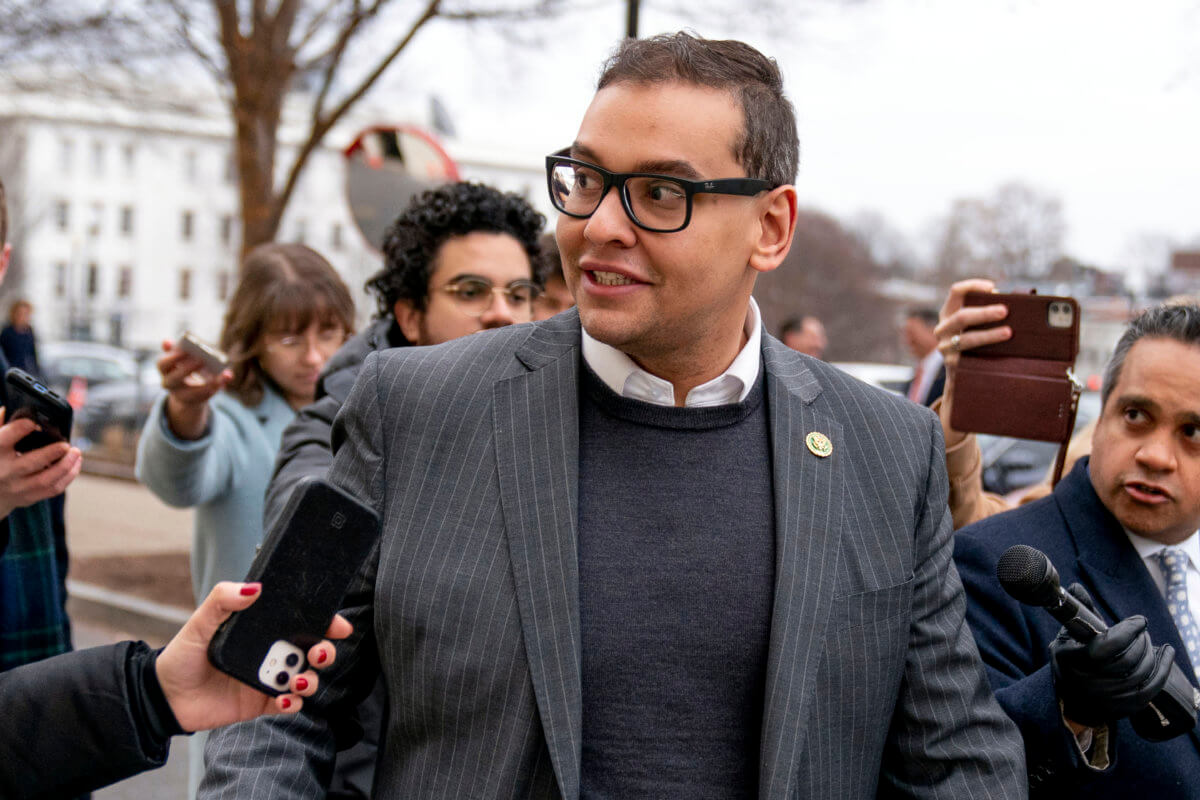MINEOLA, N.Y. (AP) — A woman and toddler whose remains were discovered scattered along an oceanfront highway not far from the victims of Long Island’s infamous Gilgo Beach killings were identified Wednesday as a U.S. Army veteran from Alabama and her daughter.
Tanya Denise Jackson, 26, of Mobile, had been living in Brooklyn with her 2-year-old daughter, Tatiana Marie Dykes, at the time of their deaths, Nassau County police announced.
Jackson, who police say may have worked as a medical assistant, had been previously nicknamed “Peaches” by investigators after a tattoo on her body.
Her identity had been a mystery for nearly 28 years. For roughly half that time, investigators have sought to determine whether she and her daughter were victims of the same killer, or killers, who left the bodies of several other people strewn in the sand along the parkway that runs the length of Jones Beach Island.
Police said Wednesday that they had no evidence at this point linking the mother and daughter’s deaths to Rex Heuermann, who has been charged in the deaths of seven women whose remains were discovered elsewhere on the beach road and other parts of Long Island.
“Although Tanya and Tatiana have commonly been linked to the Gilgo Beach serial killings because the timing and locations of their recovered remains, we are not discounting the possibility that their cases are unrelated from that investigation,” Nassau Police Det. Capt. Stephen Fitzpatrick said.
“I’m not saying it is Rex Heuermann and I’m not saying it’s not,” he added. “We are proceeding as if it’s not, keeping our eyes wide open.”
Some of Jackson’s remains were discovered on June 28, 1997, stuffed inside a plastic tub in a state park in West Hempstead. More remains, and the skeletal remains of the female child, were found in April 2011 off Ocean Parkway, which runs for 15 miles (24 kilometers) along Long Island’s barrier island beaches.
At the briefing Wednesday, law enforcement officials said they had identified Jackson and her daughter through advanced DNA and genealogy research.
“The reality is, our work has just begun,” Nassau County District Attorney Anne Donnelly said. “Knowing the identities of the mom and the little baby is just a first step to help us get to solving these murders.”
Fitzpatrick said police spoke with the child’s father, who was cooperating with the investigation and is not considered a suspect at this time.
He said local authorities initially turned over DNA evidence to the FBI, which provided a likely identification for the two in 2022. Additional DNA samples obtained the following year allowed police to notify surviving family members last year. The two were recently laid to rest, with Jackson receiving “full military honors,” Fitzpatrick said.
Jackson, who drove a black 1991 Geo Storm, was estranged from her family so it was some time before she was reported missing, he added. She served in the U.S. Army from 1993 to 1995, living on three bases in Texas, Georgia and Missouri, according to Fitzpatrick.
“We never gave up on striving for justice for either Tanya or Tatiana,” he said. “We’re determined to find the reasons and circumstances that led to their untimely deaths.”
Nassau Police said they’re offering a $25,000 reward to anyone with information leading to an arrest.
Public interest in the mystery of “Peaches” identity surged in 2011, when police searching for victims of a possible serial killer discovered that her bones were among 10 sets of human remains discovered off of Ocean Parkway not far from Gilgo Beach.
Most of the victims were female sex workers.
Heuermann, an architect who lived on Long Island, was charged with killing three of the women in 2023. Authorities have since charged him with four more killings. Heuermann has maintained his innocence and pleaded not guilty. His lawyer did not immediately respond to an email seeking comment Wednesday.
Suffolk County District Attorney Ray Tierney’s office, which is prosecuting Heuermann, said in a statement he is not commenting on “any topics even tangentially involved to the investigation” while a pre-trial hearing plays out.
Authorities are still trying to identify one more set of remains. In September, Long Island officials released more detailed renderings of a victim believed to be of Chinese descent whose remains were found off Ocean Parkway in 2011. The victim died in 2006 or earlier, was likely between ages 17 and 23 and about 5 feet 6 inches (170 centimeters) tall.
Officials for years had identified the victim as male, but said they now believe the person may have presented outwardly as female as they were dressed in women’s clothing.












